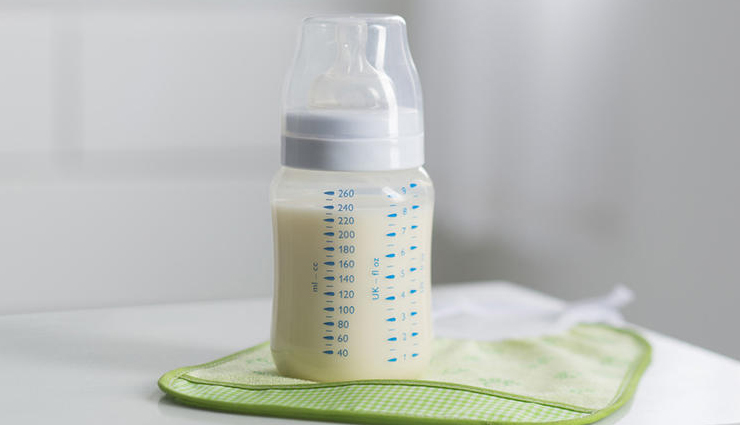- Home›
- Healthy Living›
- 4 Breastfeeding Mistakes New Mothers Should Avoid
4 Breastfeeding Mistakes New Mothers Should Avoid
By: Priyanka Maheshwari Thu, 22 June 2023 1:09:02

Breast milk holds utmost significance as a nutritional source for infants, particularly during the initial five to six months after birth. The World Health Organization (WHO) states that breastfeeding is a highly effective method to promote child health and ensure their survival. According to the WHO, exclusive and sustained breastfeeding on a global scale has the potential to prevent approximately 13% of deaths among children below the age of five.
The US Centers for Disease Control and Prevention (CDC) affirms that breastfeeding is the optimal method to safeguard infants against various short and long-term illnesses and conditions. Furthermore, the CDC states that babies who are breastfed have a reduced likelihood of developing asthma, obesity, type 1 diabetes, and sudden infant death syndrome (SIDS). The World Health Organization (WHO) emphasizes that breastfeeding has the potential to save the lives of more than 820,000 children under the age of five annually.

# Breastfeeding while lying down
A common error made by mothers is assuming a reclined position while breastfeeding their infants. WebMD cautions against the potential dangers of lying down during breastfeeding, especially if the mother falls asleep, as it can pose risks such as aspiration (the unintentional inhalation of food or liquid into the lungs). However, when proper safety measures are taken into account, engaging in side-lying breastfeeding can be done comfortably and safely.

# Long hours of breastfeeding
An additional error observed among mothers is excessively prolonged breastfeeding sessions. Some mothers continue to nurse their babies for extended periods of time, such as one to one and a half hours, which is incorrect. It is important to note that babies typically require only 15-20 minutes of feeding, and any additional breast milk beyond that duration is unnecessary.

# Perceived Insufficient Milk Supply
Perceived Insufficient Milk Supply (PIMS) occurs when a breastfeeding individual mistakenly believes they have a low production of breast milk. Although there are instances when mothers may experience a genuine decrease in milk supply, this perception can arise even when it is not the case. Entertaining such thoughts and feelings can result in stressful situations, leading to a reduction in breast milk production. Heightened stress levels can trigger the release of hormones like cortisol, significantly impacting the supply of breast milk. Consequently, the doctor advises mothers to actively reduce their stress levels.

# Unnecessary feeding of formula milk
In certain situations, mothers may mistakenly introduce formula to their babies based on a perceived lack of breast milk supply, even when it may not be necessary. It is recommended to exclusively breastfeed infants for the initial five to six months of life. While formula milk is a safe alternative, it does not offer the same nutritional advantages as breast milk. Therefore, resorting to formula should only occur when a mother is unable to produce breast milk and not solely due to a perception of insufficient supply. However, it is essential to consult with a pediatrician before making any decisions.





